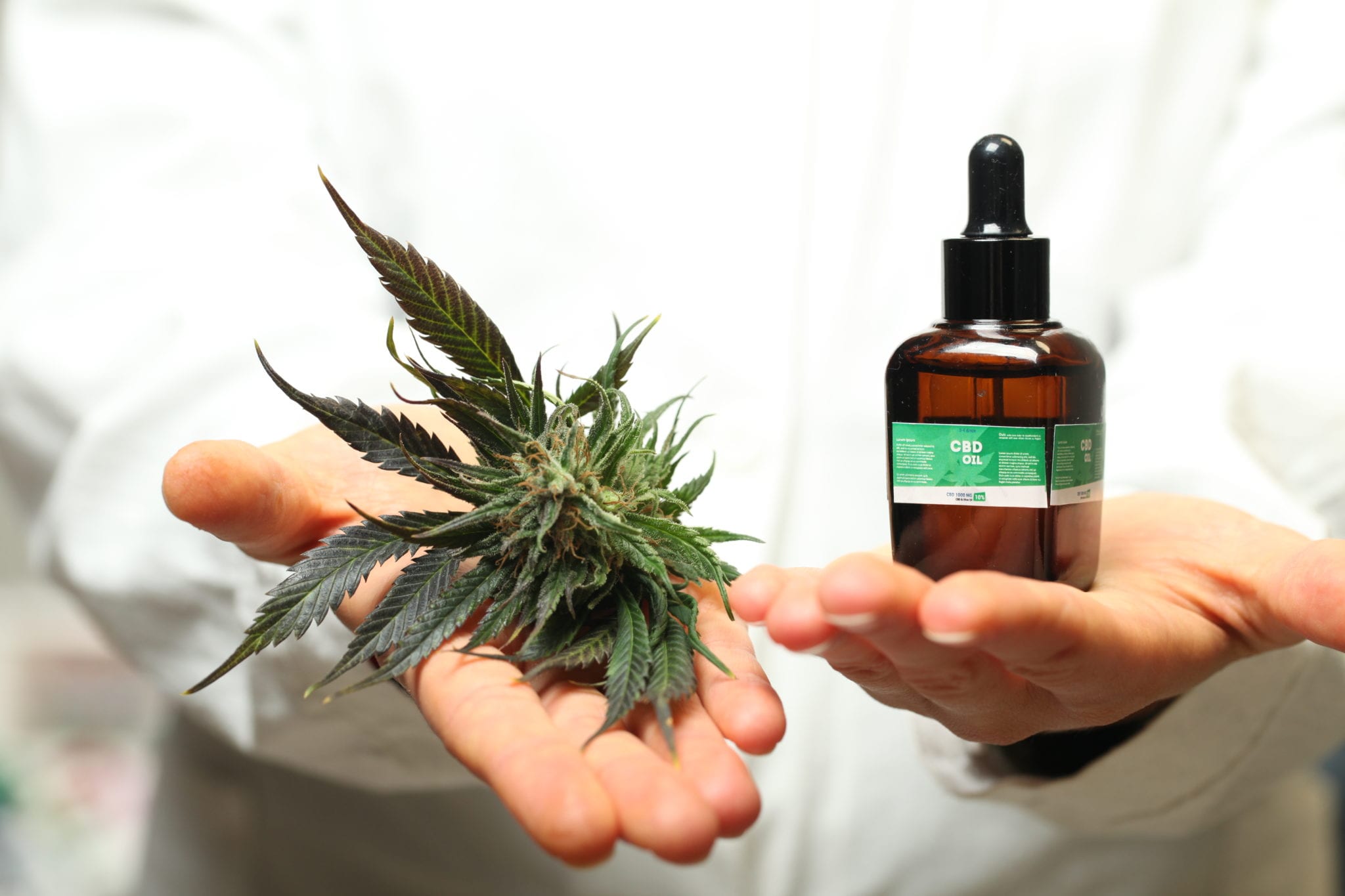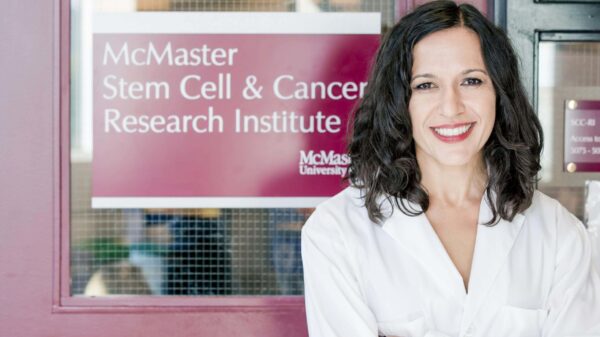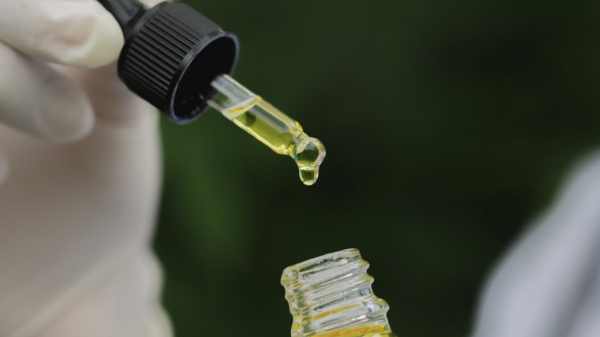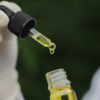As misinformation on COVID-19 continues to spread almost as fast as the virus itself, one Canadian company wants to separate fact from fiction on whether compounds in cannabis can help treat the disease.
Toronto-based Cannalogue, a medical cannabis e-commerce firm, has applied to Health Canada to conduct a clinical trial to see if cannabidiol (CBD) can reduce the severity of COVID-19 symptoms in patients.

Dr. Mohan Cooray, CEO of Cannalogue, has been talking with Health Canada to expedite a research licence application to test if CBD can decrease COVID-19 symptoms in patients. Submitted photo
Dr. Mohan Cooray, the CEO of Cannalogue, said the company has been talking to Health Canada since December to expedite the study.
“If there’s very important questions that we can potentially help answer we should do it now — not three months from now, not six months from now,” Dr. Cooray told Mugglehead. “This is the time to reduce the severity of the symptoms for COVID-19, which is already causing significant rates of morbidity and mortality.
Current data shows COVID-19 has caused nearly 34,000 deaths worldwide. But Dr. Cooray says if the mortality rate continues to climb towards five per cent, the number of lives lost to the disease could reach millions.
If Canada and countries around the world cannot slow the rate of new infections fast enough, we must look at all possible ways to reduce the number of deaths, he said.
Cannalogue is looking specifically at the potential medical benefits of CBD, said Dr. Cooray, who also specializes in gastroenterology at the Michael Garron Hospital in Toronto.
Emerging research suggests cannabis can reduce inflammation in the lungs
Although there is no current medical proof that cannabis can prevent, treat or cure any coronavirus strain, Dr. Cooray says there’s emerging scientific evidence that CBD can help stimulate immune cells in the body, which may dampen inflammatory responses caused by infections.
“I’m not saying that CBD will do anything,” he said. “However, the hypothesis that we’re looking at is that CBD could reduce the severity of COVID-19 because it reduces the body’s inflammatory response. And that needs to be investigated.”

Although there is no data related to COVID-19, Dr. Cooray says there is evidence that CBD can decrease inflammation caused by human immune cells under attack. Photo illustration via Deposit Photos and the U.S. CDC
He points to a study published this year in the journal Cells that shows promising results when CBD is given to patients with sepsis, a life-threatening illness caused by the body’s immune response to an infection.
Dr. Cooray said the researchers are confident that CBD reduces the production of cytokine, the immune system’s chemical trigger that causes inflammation at a cellular level inside the lungs.
But what could that mean for the treatment of COVID-19?
Scientists around the world are trying to discover why the novel coronavirus triggers a similar exaggerated inflammatory response in patients with COVID-19, Dr. Cooray says. Once the virus binds to immune cell receptors in the lung, it can cause deadly pneumonia-like symptoms, especially among the elderly.
‘Not trying to create false hope’
Dr. Cooray said his team is eager to test whether CBD can also decrease those signals from immune cells, which would then ease the worst of the COVID-19 symptoms in patients.
“I’m not trying to create false hope,” he said. “I’m basing my hope on the science, the medicine, the needs, the alternatives, the harm — we weighed everything to make this decision.”
Dr. Cooray is also an assistant clinical professor at the department of medicine at McMaster University, where he says he’s conducted over 10,000 hours of evidence-based medicine research.
Because he says Cannalogue is the only licensed Canadian cannabis company led by a physician, it helps their chances of receiving the research licence.
Mugglehead asked Health Canada whether they would be expediting Cannalogue’s application, but did not hear back before press time.
The federal agency had previously said that it hired more staff last July to streamline a backlog of applications.
As of Jan. 20, the agency said it had issued 222 cannabis research licences — an increase of more than 130 since last summer — with 196 still in queue.
#FactCheck: There is currently no cure for #COVID19. Help fight #misinformation and keep 🇨🇦 safe.
❌ Do not share false or unproven information
✔️ Do seek out credible sourcesStart here:
➡️ https://t.co/wiMj3SPDTu
➡️ @CPHO_Canada pic.twitter.com/Gjh9snyJQv— Health Canada and PHAC (@GovCanHealth) March 25, 2020
Misinformation runs rampant during pandemic
Dr. Cooray said he was very skeptical of the efficacy of medical cannabis when he started his practice five years ago.
But when he gave cannabis to patients with severe digestive conditions like Crohn’s disease, he said he was shocked by the “incredible” results.
That prompted him to start Cannalogue, which was launched earlier in the month to help patients have better access to, and knowledge of, medical cannabis products.
But now he wants to also answer the call for businesses to contribute in the fight against COVID-19.
He says another way to help is stopping the spread of misinformation, which can worsen the impact of the disease.
Dr. Dani Gordon, a medical cannabis expert based in the U.K., said she has received numerous media requests about whether weed can bolster the immune system and fend off COVID-19.
https://www.instagram.com/p/B92Hsd-hJdb/
While the internet is swirling with stories on the subject, she said, there’s no hard data available yet.
Like Dr. Cooray, she is a certified medical doctor who says she puts an onus on scientific evidence when researching medical applications of cannabis.
“I think we do have to be cautious with generalized statements about ‘immune boosting’ as the public can often take this to mean they should go out and start buying cannabis oil in large quantities to start taking for ‘prevention’ of COVID-19,” Dr. Gordon told Mugglehead in an email.
She said miracle cure claims for cannabis can have harmful effects on society, but also on the industry as promoting “snake oils.”
Dr. Gordon said she hopes Cannalogue will have its trial approved and “will eagerly await any early results.”
Does THC increase viral loads?
Earlier this month, a data firm warned against ingesting THC if you have COVID-19, citing the only study published to date on acute viral infections and cannabis.
Read more: Don’t mix THC with COVID-19, Aurelius researchers say
“We know that the epidemiology of COVID-19 is similar to the influenza virus and has a similar disease presentation,” Aurelius Data CEO Julie Armstrong said in statement. “And we know that in studies where THC was administered to mice with influenza, we saw an increase in viral loads and a decrease in the immune system to fight off the virus.”
Although more research is needed, Dr. Gordon recommends medical cannabis patients use the lowest dose of THC possible, and for recreational users to avoid it altogether.
However, Dr. Cooray said he doesn’t agree with some of the conclusions that Aurelius Data arrived at based on the 2017 pre-human study.
When dissecting the research out of the National Autonomous University of Mexico, Dr. Cooray said the scientists concluded THC may not necessarily have a beneficial effect on treating influenza viruses. But that doesn’t mean THC is harmful, he explained.
He said the team behind Montana-based Aurelius essentially cherry-picked data to engineer a splashy headline. Reporting on serious health issues without a robust understanding of medicine can be harmful for society, he added.
“If you don’t understand science and medicine,” Dr. Cooray said, “You could draw false conclusions where it’s not beneficial to anybody, especially during this time.”

Dr. Mohan Cooray says we’ve only reached tip of the iceberg in understanding the potential of medical cannabis. but people should only consult credible scientific sources for information. Photo via Deposit Photos
Science is key in crisis and cannabis
During a global pandemic, the constant stream of new information can be confusing to the public. That’s why Dr. Cooray said it’s even more important for the scientific community to band together and help guide the world through this crisis.
Reggie Gaudino, chief science advisor for New Frontier Data, is also pushing for research into cannabis and COVID-19. He recently published an article calling on regulators to allow for more human studies on the efficacy of weed in treating viruses.
“The issue remains that there just is not sufficient information. CBD helps with some viruses, but not all,” he wrote.
Gaudino will address myths and facts about the anti-viral and anti-inflammatory effects cannabis might have on the novel coronavirus at a one-day virtual cannabis town hall on April 2.
Read more: Cannabis industry reps hold global virtual town hall on COVID-19 impact
As for Dr. Cooray, he has faith the world will get through this difficult time.
He says his ultimate goal is for Cannalogue to lead the medical cannabis space by discovering potentially safer alternative treatments for diseases while adhering to evidence-based medicine.
But for now, his focus is on fighting COVID-19.
“We really decided to focus on this initiative because it is a critical global importance. We have to evaluate and see if we have assets that we could potentially be beneficial to be able to mitigate some of the harm at a global level,” he said.
“And unequivocally the answer from our perspective is: Yes, we do.”
More information and an application to participate in the clinical trial is available on Cannalogue’s website.
Cannalogue has applied to Health Canada for clinical trial in the fight against coronavirus using medical cannabis.
Newswirehttps://t.co/96mXIGow0v
Learn Morehttps://t.co/8WBvJcq2Oa#coronavirus #coronavirus2020 #covid19 pic.twitter.com/wUS6cdJ3P8
— Cannalogue (@cannalogue) March 25, 2020
Top image via Deposit Photos
jared@mugglehead.com
@JaredGnam















Sadye Antonson
April 7, 2020 at 4:51 am
Hi, this article about Can cannabis treat COVID-19? Toronto firm hopes clinical
trial will provide answers is very useful and inspirational.
That is why I want to help me to leave you a way to get rid of herpes:
https://bit.ly/2XdNOAT
Great success with this site!